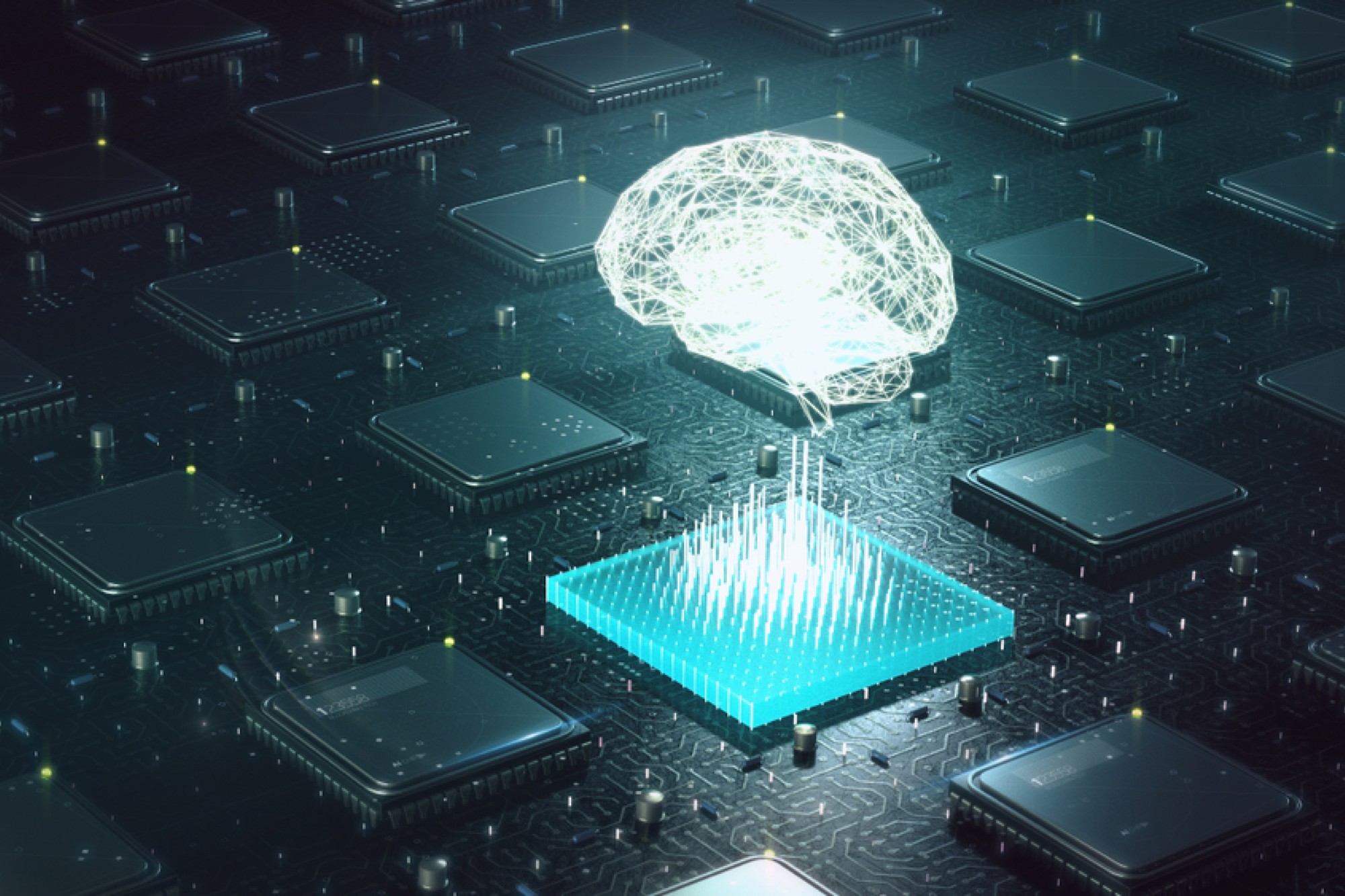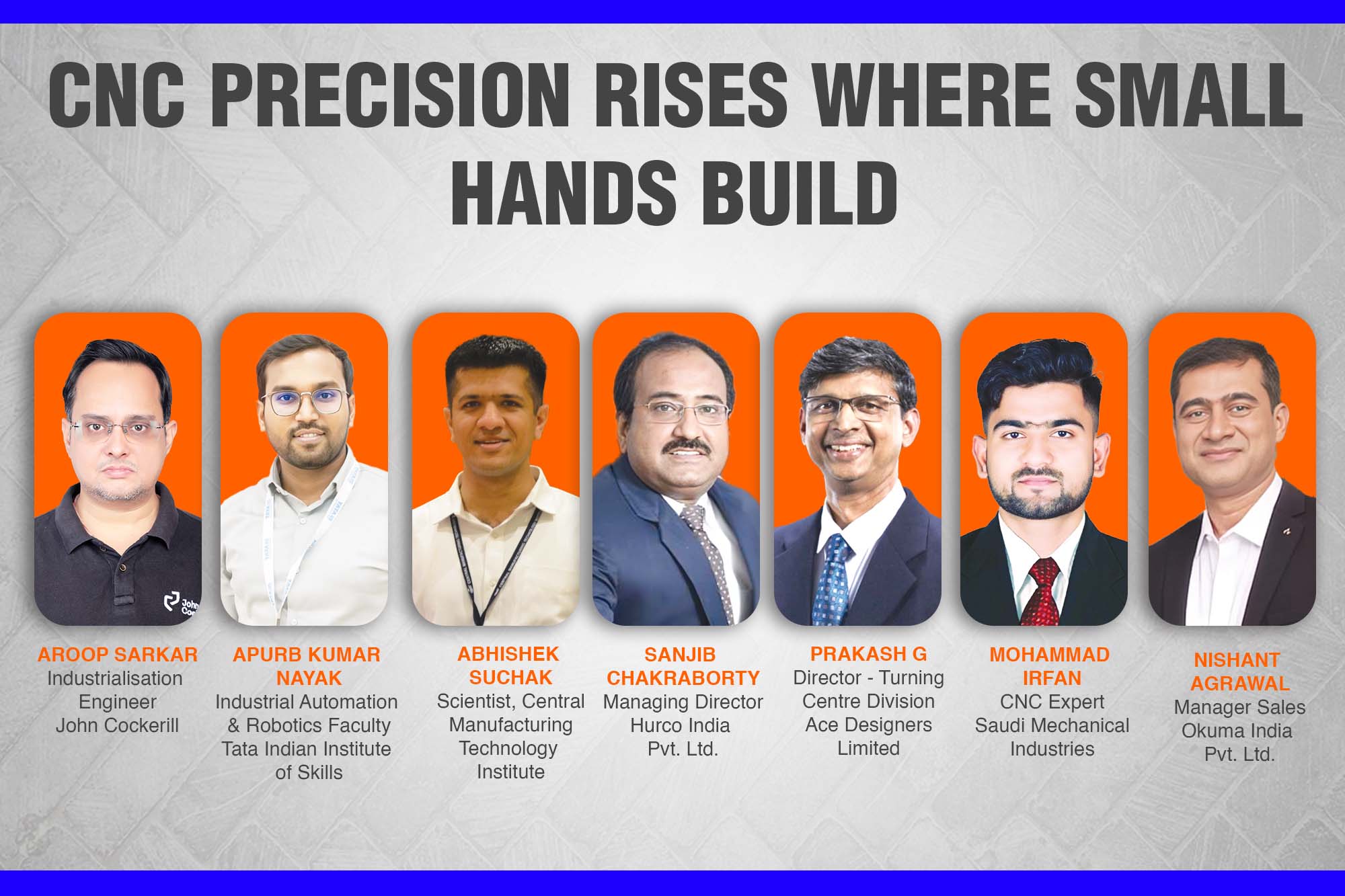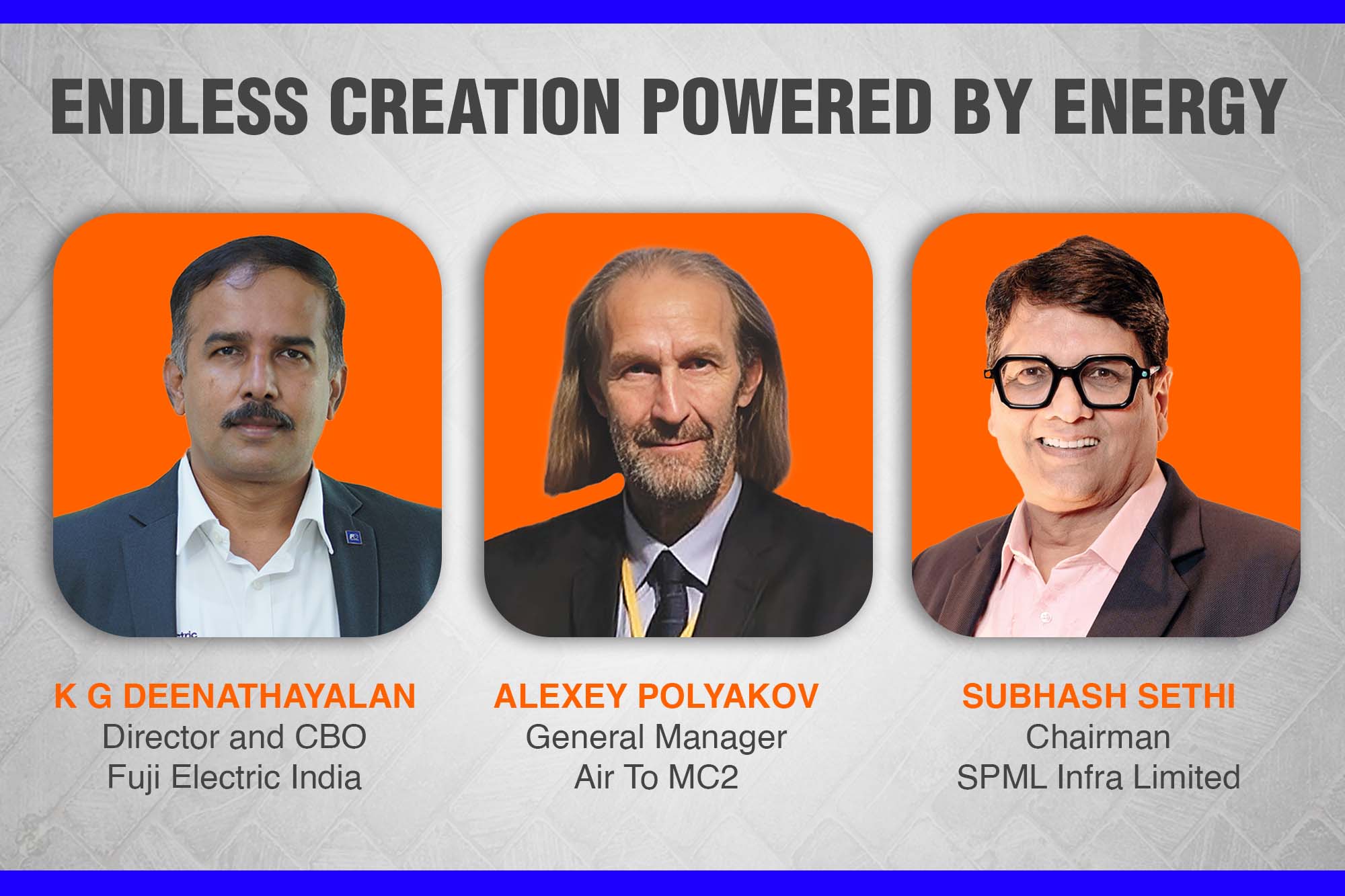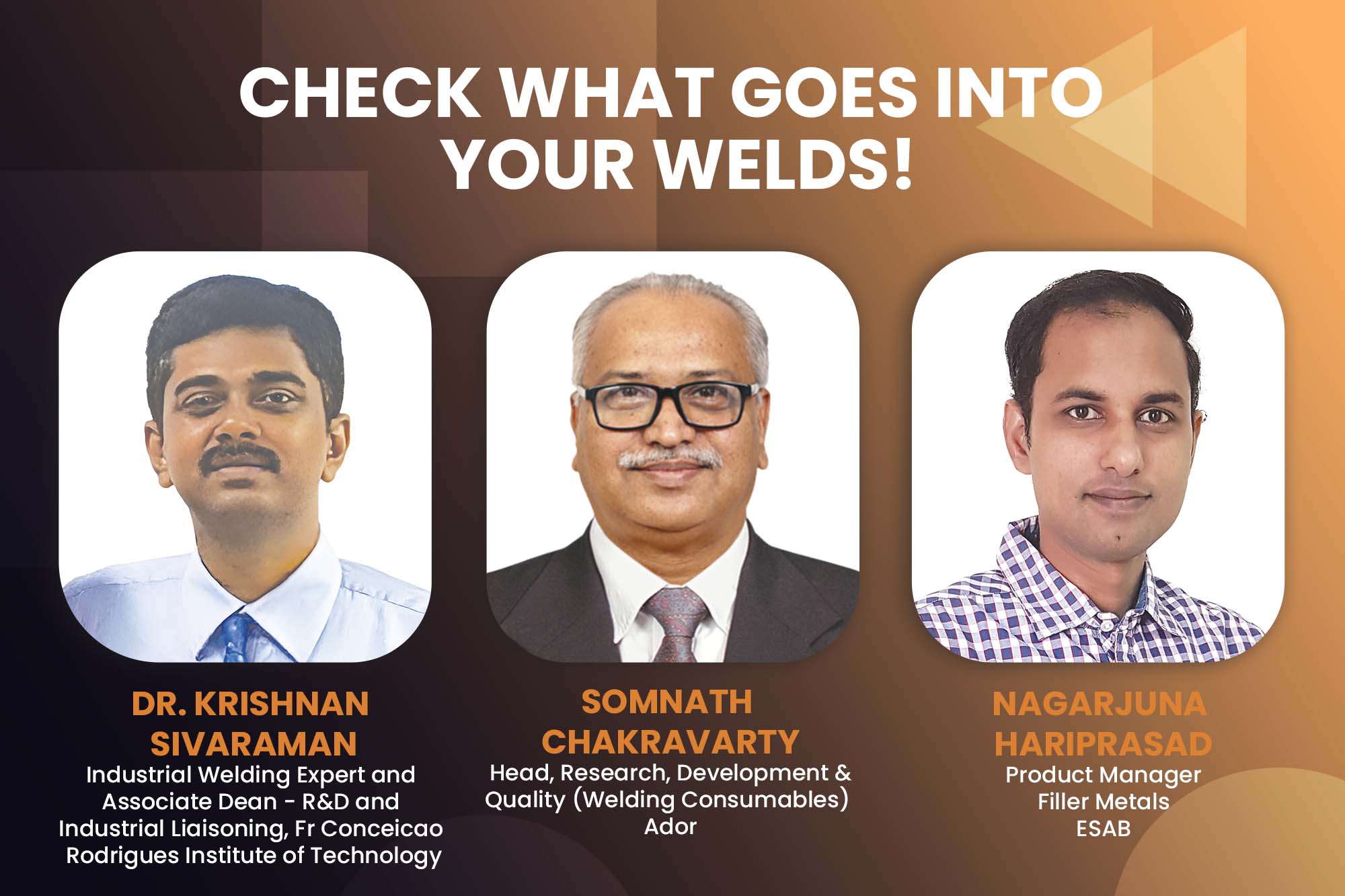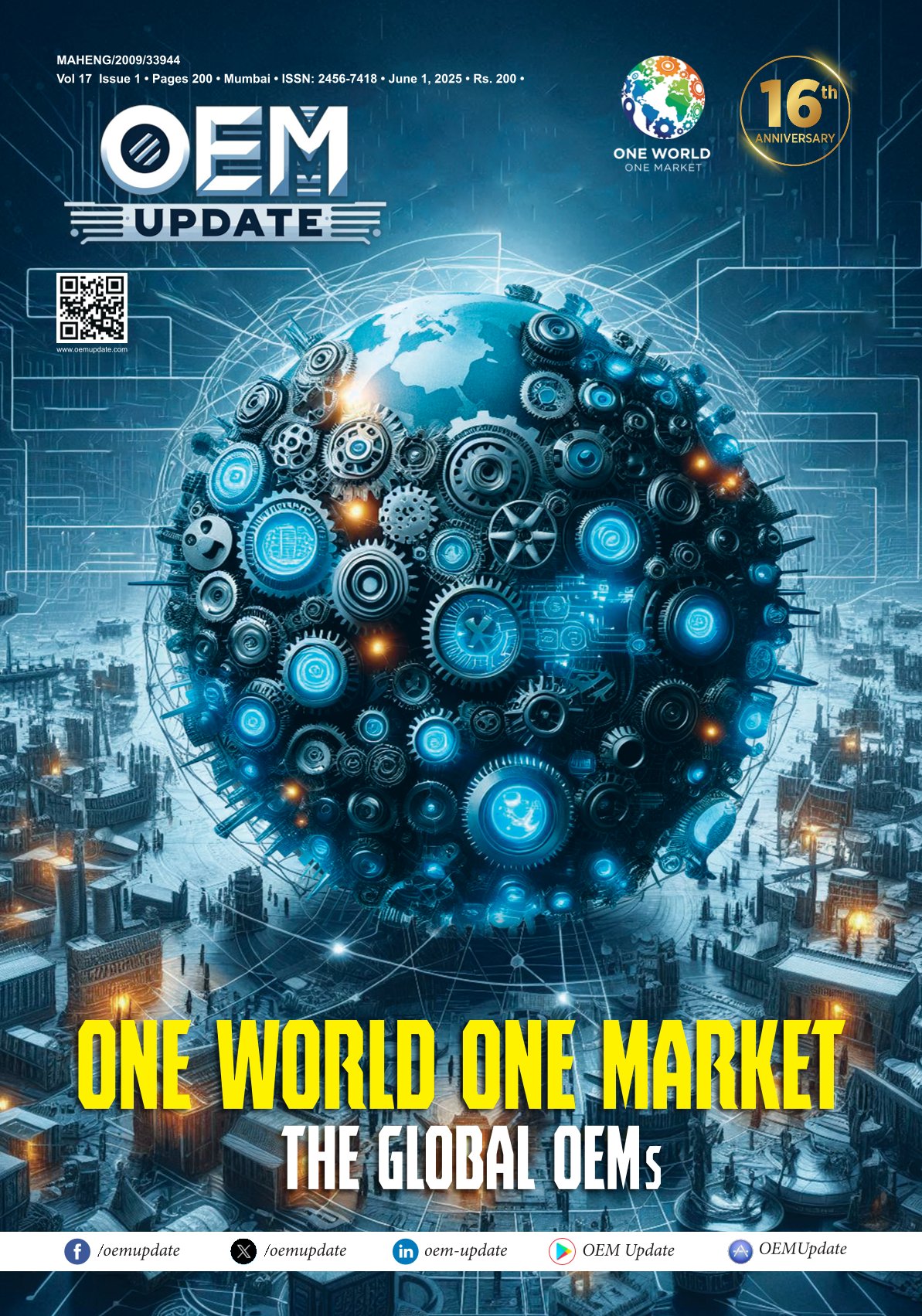Deep tech integration in manufacturing
By OEM Update Editorial March 12, 2024 2:05 pm IST
Manufacturing-led growth is bound to build a $5 trillion economy for India. Accounting for about 15 percent of India’s GDP and employing around 12 percent of the country’s workforce, the growth of domestic manufacturing enlists the participation of every stakeholder. With the government investing a hefty sum in deep tech, it envisions the growth of the manufacturing sector, which is imperative.
Deep tech, or deep technology, encompasses startups focusing on advanced engineering innovation or widespread scientific breakthroughs. This term distinguishes such ventures from ‘shallow tech,’ which denotes easier technological advancements transitioning businesses from non-digital to digital models. Shallow tech innovations, like digitising phone-based delivery service into a mobile app or offering e-books instead of physical copies, need more substantial disruption potential as competitors easily replicate them. From a manufacturing perspective, the convergence of deep tech investments, particularly Virtual Reality (VR), holds the promise of transformative change.
The advent of advanced technologies like artificial intelligence, machine learning, robotics, and blockchain is transforming industries across the board. Termed as Deep Tech, these technologies enable new efficiency, quality, and innovation levels. The manufacturing sector, in particular, stands to gain tremendously from the integration of Deep Tech. With the Indian government’s push towards self-reliance and domestic manufacturing under the Make in India initiative, investments in Deep Tech could provide the necessary impetus toward realising these goals.
Significance of Deep Tech for Manufacturing
Utilising Deep Tech, including AI, ML, advanced robotics, blockchain, and digital twin technology, revolutionises manufacturing by seamlessly integrating predictive capabilities into each sub-process. AI and ML analyse vast data to predict optimal parameters, detect deviations, and suggest corrective actions, fostering continuous improvement and enhancing productivity and safety. Advanced robotics, equipped with vision, mobility, and human collaboration capabilities, handle complex operations with precision and efficiency, ensuring a seamless production flow.
Sudhir Goel, Chief Business Officer at Acer India, notes that additive manufacturing enables swift prototyping and customisation, effectively addressing varied customer demands. Furthermore, Deep Tech enhances supply chain management by leveraging blockchain technology for transparency and analytics to improve forecasting accuracy. Its implementation has the potential to promote environmental sustainability within the manufacturing sector by reducing waste, enhancing energy efficiency, and facilitating circular economic practices.
Blockchain technology provides foolproof quality assurance and end-to-end supply chain traceability, establishing trust and authenticity in every manufacturing stage. Digital twins enable real-time monitoring and virtual problem detection, facilitating quick adjustments and reducing development cycles for enhanced design perfection. Deep Tech adoption drives efficiency, agility, safety, and quality, which is crucial for maintaining a competitive edge in the global manufacturing landscape.
Strategies for Leveraging VR Technology
VR advancements allow manufacturers to revolutionise training methodologies, enhance operational efficiency, and optimise production processes through realistic and interactive simulations. With VR, employees can undergo training in simulated environments that mirror real-world scenarios, supplying them with hands-on experience and practical skills that translate directly to their roles on the factory floor. This reduces the risk of errors and safety incidents, increasing productivity and cost savings.
To harness the overall capacity of VR technology in manufacturing, businesses ought to adopt strategic approaches that align with their organisational desires and objectives. This involves figuring out critical training desires, designing customised VR experiences tailored to specific workflows, and seamlessly integrating VR solutions into existing training programs. Moreover, fostering a culture of innovation and continuous improvement is paramount for long-term success. By partnering with skilled technology providers proficient in growing VR training modules, manufacturers can ensure the seamless implementation of large-scale VR training initiatives that drive tangible results.
Boosting ‘Make in India’
The Make in India campaign aims to energise domestic manufacturing through tech-driven solutions that can inspire the world. The government is providing extensive support through policies like PLIs and the setting up of technology centres. Specifically for Deep Tech, NITI Aayog has proposed an initial ₹7,500 crore fund towards AI-based manufacturing projects. The Ministry of Electronics & IT offers incentives for AI, ML, IoT-based devices and robotics technology products. Government think tank Invest India has also partnered with IT industry body NASSCOM to host DeepTech Club – a scout and support initiative for DeepTech startups across key domains like health tech, smart mobility, and clean energy. Such concentrated efforts will drive faster development of indigenous DeepTech capabilities.
Sustained investments in infrastructure and skill development hold the key to long-term success. The government programs like Digital India and Skill India are steps in the right direction. Collaboration with industry players in funding research projects and guiding curriculum design can create market-ready solutions.
Indian Manufacturing
Applications of Deep tech across major Indian manufacturing segments revealed immense potential. Companies like Tata Motors, Mahindra & Mahindra, and TVS Motor are deploying AI and ML for computer-aided design, predictive maintenance, automated quality checks, and personalisation. Robotics improves repeatability and accuracy in fabrication, while analytics optimises inventory levels across dealership networks. Blockchain enables secure connectivity and over-the-air updates in connected vehicles.
For the chemical industry, leveraging real-time data analytics improves asset utilisation and energy efficiency, resulting in higher yields. Adopting human-machine collaboration, autonomous mobile robots, and automated guided vehicles drives process automation and safety. Machine learning and blockchain technology are helping transform R&D processes for Pharmaceuticals. Besides faster and cheaper drug discoveries, blockchain ensures drug traceability across the supply chain to mitigate the risk of counterfeits entering the system. Computer vision solutions enable non-invasive quality checks. Textile factories are deploying robots alongside workers to improve productivity and quality. Computer-aided design with virtual trials helps compress product development cycles.
Strategies for leveraging Deep techThe effective use of Deep Tech in manufacturing necessitates strategic planning from both industry and government across several key parameters. According to Ashwin Jaishanker, CEO and CO-Founder at AutoVRse, high investments are required to upgrade digital infrastructure in industrial units. Also, government subsidies and low-cost loans can aid smaller players in adopting automation. Strengthening access to the cloud, data centres, broadband connectivity, and IoT networks is imperative.
Establishing open manufacturing data exchanges, standardising data collection, harmonising historical datasets, and mandating data transparency across the supply chain are crucial for training predictive models. Skilling and training initiatives must be scaled up and aligned with the National Skill Qualification Framework for various manufacturing job roles related to AI, Robotics, IoT, etc. Collaboration with schools and universities to upgrade technology curricula is also vital. Innovation support is essential, including boosting university grants for design/engineering research and setting up applied research centres focused on indigenous deep tech product development for different manufacturing niches. Easing patent filing and dedicated funding programs for tech startups are key catalysts. International cooperation is crucial, facilitating exposure to breakthrough innovations globally through international Hackathons and technology transfer collaborations with countries at the forefront of Deep Tech advancement.
Potential Risks of Deep Tech
Deep Tech integration in manufacturing promises substantial efficiency and productivity improvements. However, several challenges must be addressed. The initial investment needed may be too high for smaller manufacturers or those with limited budgets. Integrating complex Deep Tech solutions with existing systems can take time and effort, potentially leading to compatibility issues. Deep Tech systems are vulnerable to cybersecurity threats, including hacking and data breaches, necessitating robust security measures.
While Deep Tech creates new possibilities, over-reliance on technology also poses certain risks requiring mitigation. Workforce disruption is a major concern triggered by the advent of automation and AI. Reskilling programs are critical for workers rendered redundant by machines. With this shift, promoting labour-intensive industries and mandating hiring quotas by the government can help minimise job losses. Deep tech suffers from inherent opaqueness with its black box mechanisms. Its recommendations or predictions need continuous human supervision as bad data or poor programming can skew outputs.
The propensity of machines to promote biases that exist in society also cannot be ruled out. Variability in testing conditions across geographies can lead to inaccurate model predictions. Ensuring dataset diversity and continuous course correction of algorithms is vital. Cyber attacks exploiting autonomous systems or embedded sensor vulnerabilities can have disastrous implications. With an exponential increase in connected devices, robust cybersecurity infrastructure must be installed across manufacturing networks. Lack of interoperability and interface standards also hinder the wide-scale adoption of Deep Tech tools. Governments need to facilitate unified platforms through industry collaboration. While Deep Tech itself may not be skewed one way or the other, risks emerge from its human handlers and external manipulators. Through supportive policy frameworks and industry cooperation, this technology holds the potential to drive Indian manufacturing towards its golden era.
The road ahead
Collaboration among government, industry, and academia is essential to fully harnessing Deep tech’s potential. Establishing a National Deep Tech Mission is key to aligning technology development with manufacturing priorities, supported by enhanced R&D funding and fiscal incentives. State-of-the-art testing infrastructure and sandboxes for hands-on learning should be developed. Skill India programs must focus on AI and data analytics, complemented by national standards for Deep Tech-related job roles. Grassroots awareness about automation and reskilling initiatives is vital. Information repositories on global tech trends and innovations are necessary. Incentivising venture capital investments in Deep Tech startups and instituting algorithmic transparency and cybersecurity standards are imperative. International partnerships for staff training and research exchanges will further drive innovation. This cohesive effort can propel India towards a globally competitive deep-tech manufacturing economy, ushering in Industry 5.0.
————————————————-
Sudhir Goel – Chief Business Officer Acer India
“Deep tech integration in manufacturing promises substantial efficiency and productivity improvements, but challenges such as high initial investment, cybersecurity threats, and workforce shortages must be addressed for successful implementation.”
Ashwin Jaishanker, CEO and CO-Founder at AutoVRse.
“The convergence of deep tech investments, particularly Virtual Reality (VR), holds the promise of transformative change for the manufacturing industry.”
Yuvraj Shidhaye, Founder and Director, TreadBinary
“Deep tech holds multidimensional benefits for Indian manufacturing on its road to global competitiveness.”
Cookie Consent
We use cookies to personalize your experience. By continuing to visit this website you agree to our Terms & Conditions, Privacy Policy and Cookie Policy.



